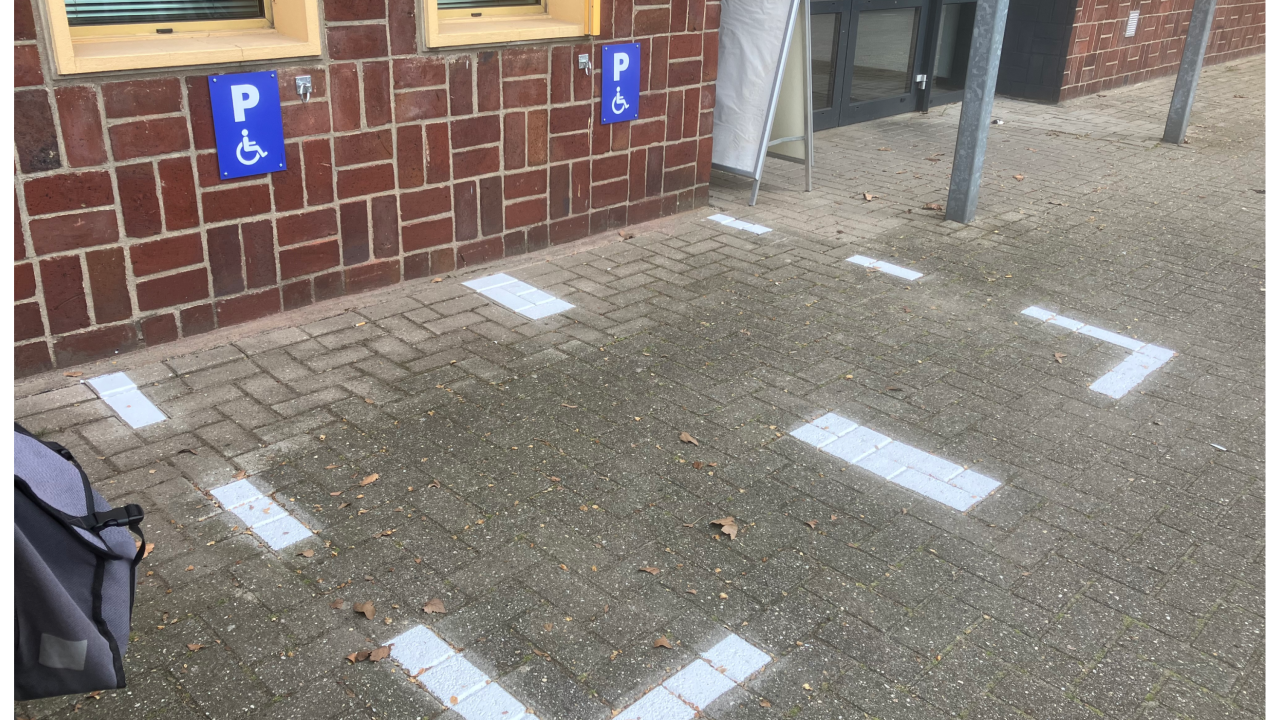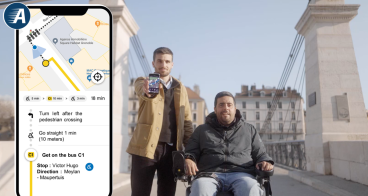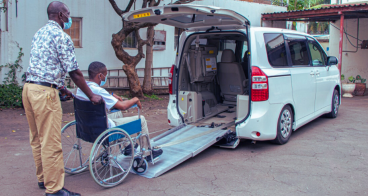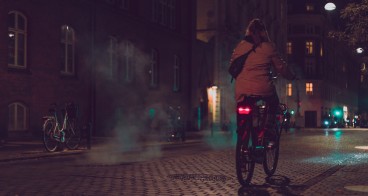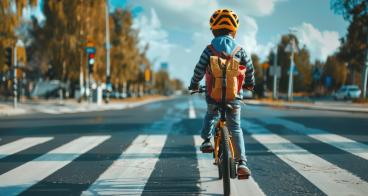Nijmegen: Reserved (bike) parking for people with reduced mobility
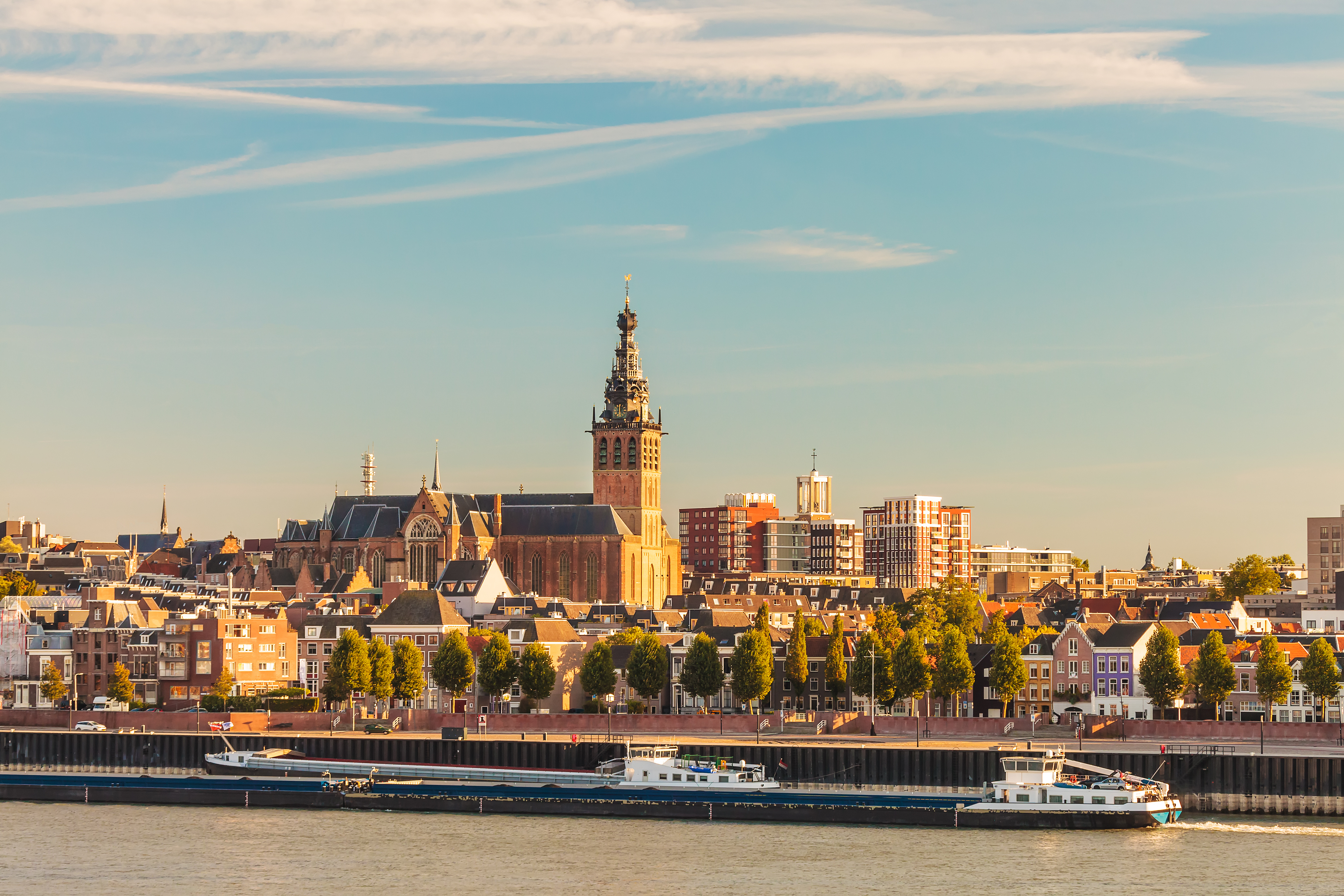
The Challenge
The primary aim is to improve accessibility for individuals with limited mobility by offering secure bike parking. This presents an opportunity to foster inclusivity in the urban environment, underlining the city's dedication to mobility and independence. Key needs include secure facilities to prevent theft, convenient access to entrances to minimize walking distances, and infrastructure adapted to accommodate mobility aids.
The Solution
A viable solution to address the accessibility needs of individuals with limited walking abilities is to provide secured bike parking close to building entrances. This solution involves creating designated spaces clearly reserved for this specific group, ensuring that they have convenient access to these parking areas. The following components make this solution effective:
- Reserved Space: Designating specific parking spaces exclusively for people with limited walking abilities ensures that they are not only accessible but also available when needed. This eliminates the frustration of searching for suitable parking.
- Proximity to the Entrance: Placing these reserved parking spaces as close to the building's entrance as possible minimizes the walking distance for users. This convenience is vital for those with mobility challenges.
- Clear Indication: Signage and clear markings should be prominently displayed to indicate that these spaces are reserved for people with limited walking abilities. This helps prevent misuse and ensures that the spaces are available for those who truly need them.
- Attachment Points: To accommodate various types of adaptive bikes or mobility aids, including those with wheelchairs or trikes, providing a metal ring or bar allows us
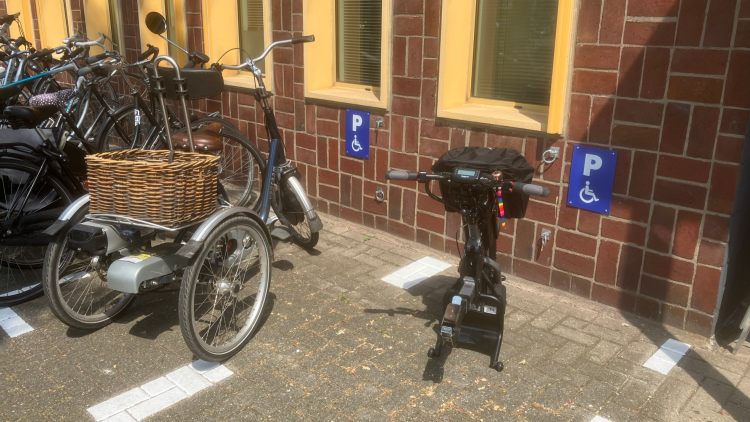
Making an impact
Implementing secured bike parking with designated spaces close to building entrances for people with limited walking abilities brings about a series of positive impacts. These encompass not only the physical accessibility but also the emotional well-being of the individuals. The impact can be summarized as follows:
- Assured Parking: People with limited walking abilities no longer face the stress of searching for an appropriate parking spot for their adaptive bikes. They can confidently assume that a reserved space will be available, making their daily routines more manageable and less stressful.
- Enhanced Sense of Welcome: The provision of designated parking spaces sends a clear message of welcome and inclusion. Individuals with limited mobility are offered the freedom to choose their preferred mode of transportation, fostering a sense of belonging and acceptance within the community.
- Greater Independence: Access to convenient and secure bike parking empowers individuals with limited walking abilities to participate more independently in society. They can access buildings, facilities, and services with ease, reducing dependence on others for mobility support.
In essence, this accessibility solution not only addresses practical needs but also has a profound impact on the emotional well-being and sense of belonging for individuals with limited walking abilities in Nijmegen. It provides them with the tools and confidence to lead more independent, active, and fulfilling.
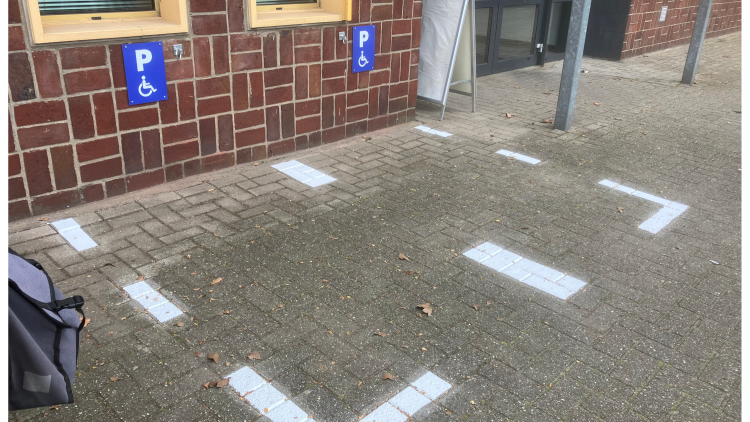
Lessons learnt
The vision for secured bike parking, with reserved spaces close to building entrances for people with limited walking abilities, became a reality in April 2023. The Business Centre Groenestraat (BCG) in Nijmegen now proudly hosts this inclusive initiative, catering to the needs of both employees and visitors.
This adaptive cycle parking project has been made possible thanks to the generous financial support of the City of Nijmegen, The Netherlands. It is a shining example of how public-private collaboration can transform urban environments to ensure that everyone has equal opportunities for mobility and participation.
The BCG Nijmegen adaptive cycle parking not only benefits the local community but serves as an inspiration for other businesses and city districts to follow suit, reinforcing the city's commitment to accessibility and inclusivity.



